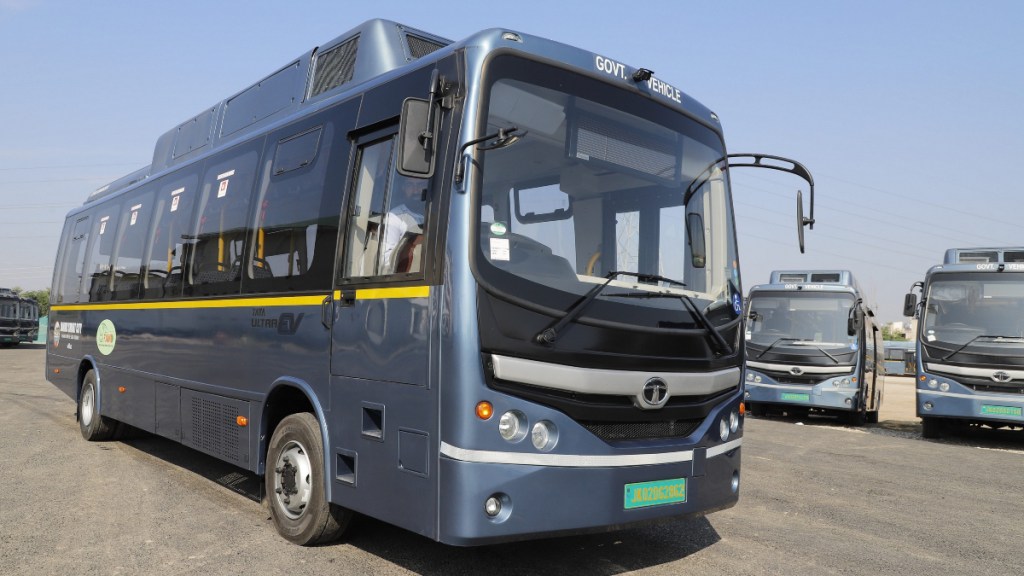The bus industry in India is projected to achieve a value of Rs 104,000 crore in 2026, with a compound annual growth rate (CAGR) of 6.64 percent. The CAGR for State Transport Undertakings (STUs) is 6.36 percent and it is 7.37 percent for private buses states a report titled ‘Traveltech 2.0: The Next Phase of Digitally Empowering the Indian Traveler’, produced by the Internet and Mobile Association of India (IAMAI) and Grant Thornton Bharat. The report was launched at the India Digital Summit (IDS) 2024 in Mumbai.
Surface transportation services like bus and rail travel have huge potential for OTA service providers who offer value-added services to their customers in addition to basic online ticketing.
In terms of geographical trends – Karnataka, Maharashtra, Tamil Nadu, Andhra Pradesh, Telangana, and Uttar Pradesh – emerged as the principal markets in STUs, constituting nearly 70 percent of the market share. The top five states in the total addressable market (TAM) for private buses are Uttar Pradesh, Maharashtra, Rajasthan, Punjab, and Haryana, which are expected to account for around 45 percent share by 2026.
Online ticketing among bus travellers is on the rise, even though the price-sensitive category of non-AC buses or intra-city bus ticketing is still predominantly offline-based. Intra-city bus travel is still predominantly served by State Transport Units (STUs) which offers great scope for private sector involvement.
Intra-city bus services are witnessing a plethora of value-added services like live bus tracking and digital ticketing being offered in city buses. A primary survey conducted among bus travellers across eight cities revealed significant interest and uptake for online ticketing and value-added services.
The report further states that even though many users still are not using online ticketing simply as a continuation of old habits, there is a great interest for online services provided they offer certain features like details on seat availability and reservation, low costs, discounts and multiple options at specific price ranges.
Railways
As regards Indian railways, the revenue contribution of reserved passengers stands at 70 percent, which corresponds to only 12 percent of passengers carried in terms of volume, whereas 88 percent of unreserved passengers contributed to only 30 percent of the revenue to the Indian railways.
Online ticketing in Indian Railways is still restricted for most private players, driven primarily by the online ticketing services run by Indian Railways itself. Nonetheless, the report estimates that reserved ticketing presents significant for OTAs/Agents in coming years.
With unreserved passengers constituting a substantial portion of the total passenger count, collaboration between CRIS and private OTAs emerges as a transformative opportunity. The shift to digital ticketing not only reduces operational burdens for the Indian Railways but also offers private OTAs an avenue to innovate tariff structures and enhance user convenience. This synergy holds the potential to elevate the passenger experience, alleviate infrastructure strain, and foster a symbiotic relationship, yielding efficiency gains for the railway system and expanding market opportunities for the private sector.
Dhruv Chopra Co-founder and CMO, Chalo said “Technology is revolutionising travel, making it easier to use than ever before. I’m confident that it will spark meaningful conversations and shape positive policies that will ensure that we leverage technology in the best possible way to make city bus travel better.”
Aloke Bajpai, Chairman, MD and Group CEO, ixigo said “Railways and buses are revolutionising the ground transport segment in India. With infrastructure development, increased internet penetration, modernisation and improvement in service quality with OTA-driven tech upgrades, this segment is poised for further growth. By leveraging technology, OTAs are empowering travellers to make smarter travel decisions, and are playing a leading role in driving online adoption in the ground travel sector.”
Prakash Sangam, CEO, Redbus said, “The next evolution of travel tech will happen as we unlock the full potential of OTAs in the ground transport business. That’s the key message from the IAMAI Travel Tech report. It is important to remove tax disparities between e-commerce operators and e-commerce suppliers in the domestic market. Currently, a customer pays a 5% GST charge when booking a non-AC bus through an e-commerce platform. This charge is zero for a direct booking from a bus operator, irrespective of whether it is done in online or offline mode.”
Vikash Jalan, Chief Business Officer, PayTM Travel added, “The new IAMAI Travel Tech Report explores the role of technology in shaping India’s travel landscape, highlighting the impact of OTAs on ground transportation and calling for collaboration to bridge the digital divide and unlock the full potential of travel technology.”



















